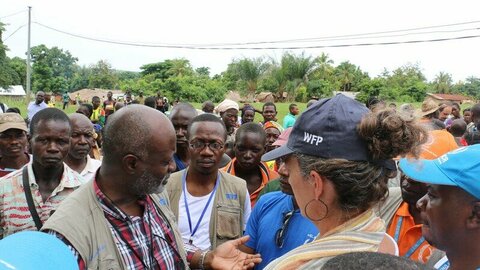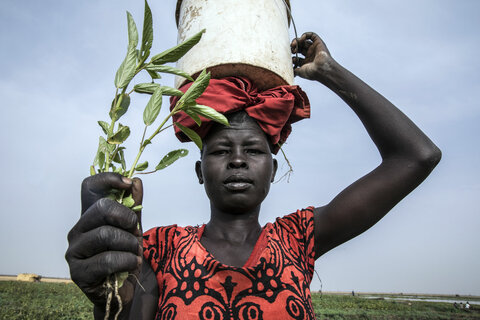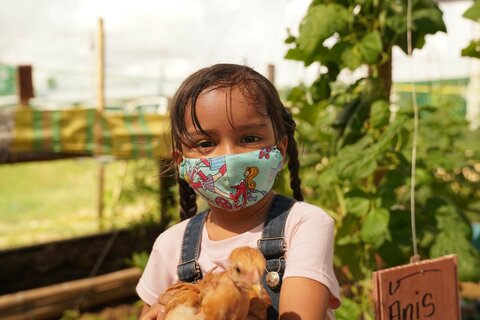Access all areas: Volunteers empower disabled Syrian refugees in Jordan
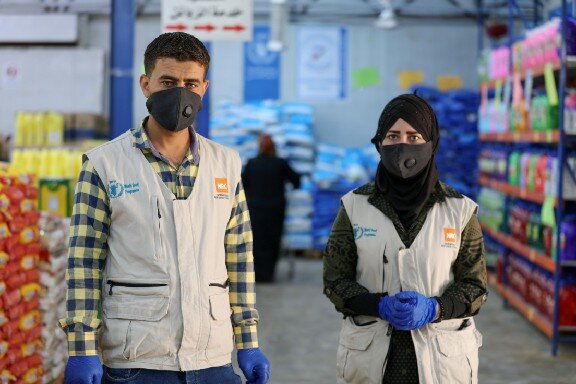
Lara is one of eight volunteers working in the Zaatari and Azraq refugee camps in Jordan—their job is to assist disabled people at grocery stores and bakeries inside the camps that are contracted to the World Food Programme (WFP).
The volunteers received training through the Norwegian Refugee Council, WFP’s implementing partner in the camps. They were introduced to a range of special needs, learnt some basics of sign language and the nuances of working to empower both disabled people and older people.
'It makes me happy when people ask for me'
“At first, I was nervous, I wasn’t sure if they would accept my help,” says Lara. “When I see a disabled person walk into the supermarket, I politely ask if they need my help. If they prefer to shop on their own, I am at hand in case they might need my assistance.”
Three weeks into the job, she noticed that people were starting to warm up to her. “It makes me happy when people ask for me specifically,” says Lara. “Giving a helping hand makes me feel like I’ve achieved something big.”
WFP provides Syrian refugees living in camps in Jordan with a variety of fresh and healthy food options for people to buy. Just under 120,000 Syrian refugees living in both camps receive monthly assistance from WFP through a blockchain system integrated with iris-scanning technology at point-of-sale.
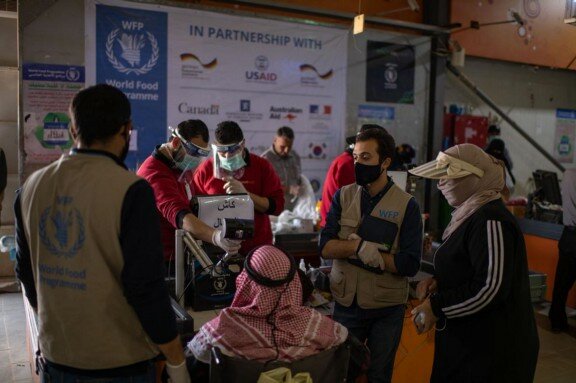
The system identifies and verifies users by linking to a biometric database that allows refugees to buy food without the need for electronic cards, pin codes or any other methods of verification.
Despite the user-friendly system, disabled people still need support accessing food.
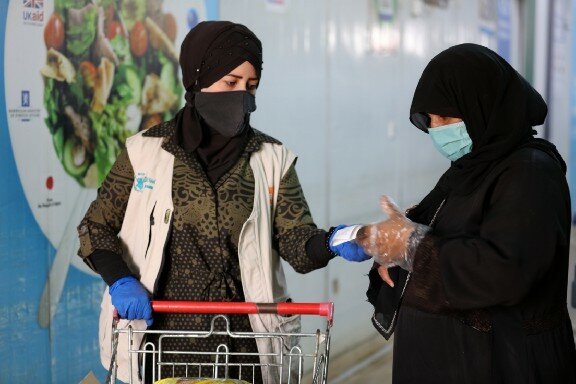
“I help people pick out items from shelves, speed up the payment process, and carry their bags,” says Deyaa, one of the volunteers working in Zataari camp.
According to a recent study, one in five Syrian refugees has a disability. This is why the support WFP and the volunteers provide is so important. In supermarkets, WFP's allocated fast-track lanes to cashiers and installed ramps at entrances for wheelchair-users.
Deyaa adds: “This job needs patience and a desire to help people.”

